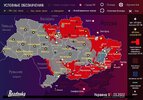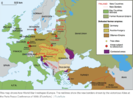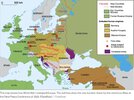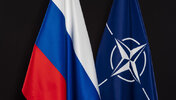- Joined
- 3 November 2013
- Posts
- 1,568
- Reactions
- 2,771
The Russian objective was to keep NATO away from their borders, which they are succeeding in doing so.That’s generally how “Wars of attrition” work, but I wonder if the Ukrainians can keep their European supply line open maybe they can wear down the Russian, it’s also just a matter of how much Russia loses between now and then, and in the on going occupation and insurgency whether any “Victory” they claim is a pyrrhic victory or not.
Not too sure how useful European supply lines will be when the map looks like this:

Once the Ukrainian troops in the East are neutralized its game over for Zelensky unless another country decides to step in with and fight Russia. I doubt they would.





